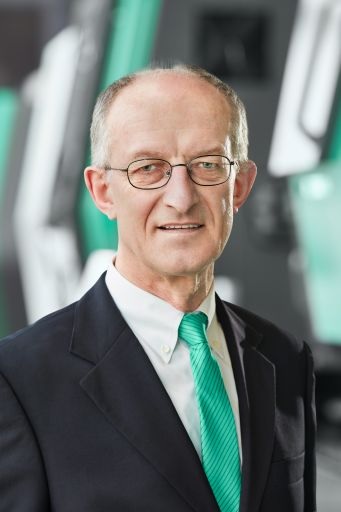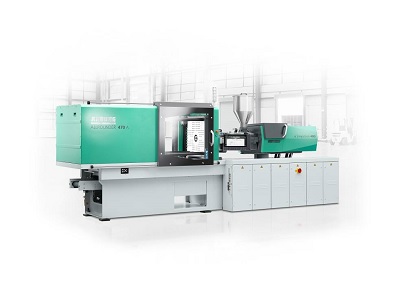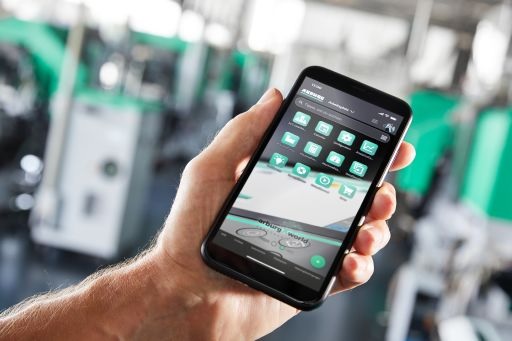At Plastec West in Anaheim, California from 7 to 9 February 2023, Arburg will be exhibiting an automated production cell in Hall B, Stand 4001. The cell will be producing digitally watermarked caps from recycled material. Other key features of the trade fair presentation include the Freeformer 300-3X for additively manufacturing complex high-temperature components and Arburg's digital products and services.
"Plastec West is second only to NPE in terms of importance for Arburg in the US," says Friedrich Kanz, Managing Director of Arburg Inc., Rocky Hill/Connecticut. "The fact that five other fairs are taking place at the same time in the same building makes this event particularly attractive. Many injection moulding companies also exhibit at MD&M, which is dedicated to medical technology, for example." According to Friedrich Kanz, automation is currently taking centre stage in all application industries, with integrated production cells also playing an increasingly important role. "Despite high inflation in the last two years, manufacturing capacities are still being built or expanded to shorten transport routes and response times," says Friedrich Kanz, summarising the current situation in the industry.

Friedrich Kanz, Managing Director of Arburg Inc.
Digital watermarks on moulded part surface via “HolyGrail 2.0”
At the stand, an Allrounder 470 A with 1,000 kN clamping force and size 290 injection unit will be producing styrene-butadiene copolymer (SB) closure caps with a digital watermark. Arburg offers the electric Allrounders 270 A to 570 A in three finely graduated variants: "Comfort", "Premium" and "Ultimate". This means that performance and equipment can be adapted to customers' individual applications – and at the best possible price-performance ratio. The "Comfort" variant will be on show at Plastec West. In addition to the servo hydraulics for simultaneous machine movements, this package also includes the “aXw Control ScrewPilot” for reproducible injection.

At Plastec West, an Allrounder 470 A produces caps from recycled material.
With “HolyGrail 2.0” technology, which Arburg will be demonstrating using closure caps as an example, moulded parts can be equipped with a digital watermark. These are postage stamp-sized codings that are applied directly via the mould cavity surface to the moulded parts, and are invisible to the end consumer. No post-printing or etching is needed to be applied post-moulding. A high speed camera can read the mark and identify what category of material the moulded part is during automated sorting at recycling centers. The watermarks are invisible to the end consumer.
The six-cavity hot runner mould will be provided by Barnes Molding Solution. The closure caps will be made of "K Resin ECO KR01" from Ineos Styrolution, a material with a recycled content of 70 per cent. The vertical Multilift Select robotic system removes the moulded parts from the mould.
Connection to the ALS host computer system
All the production cell's peripheral devices are fully integrated into the Gestica machine controller. Connecting to the Arburg host computer system (ALS) makes it possible to record and analyse production data in real time, which significantly increases production efficiency and transparency. With the Arburg Remote Service (ARS), Arburg experts can gain external access to an injection moulding machine's control system via a protected and encrypted data connection. In conjunction with on-site staff, malfunctions and standstills can be analysed efficiently. This cuts waiting times and saves costs.

“arburgXworld” portal links customers with Arburg
Alongside the ALS and ARS demonstrations, the capabilities of the “arburgXworld” customer portal will also be on show. A demo terminal will practically illustrate just how many services and business processes can also be handled digitally with Arburg. Customers using the portal have almost unlimited scope for accessing up-to-date information on the machine fleet, for example, and for starting and monitoring machines. Equally, 24/7 service requests can be made and online spare parts ordered – on all digital devices.
Freeformer with high temperature application
Also on display at the stand will be the Freeformer 300-3X for high temperature applications. The exhibit has a build chamber that can be heated to 200 degrees Celsius and discharge units that can process plastic granules up to a temperature of 450 degrees Celsius. The machine will be manufacturing a ventilation duct for the aerospace industry made from Ultem 9085, a flame-retardant material qualified for applications in this industry.














